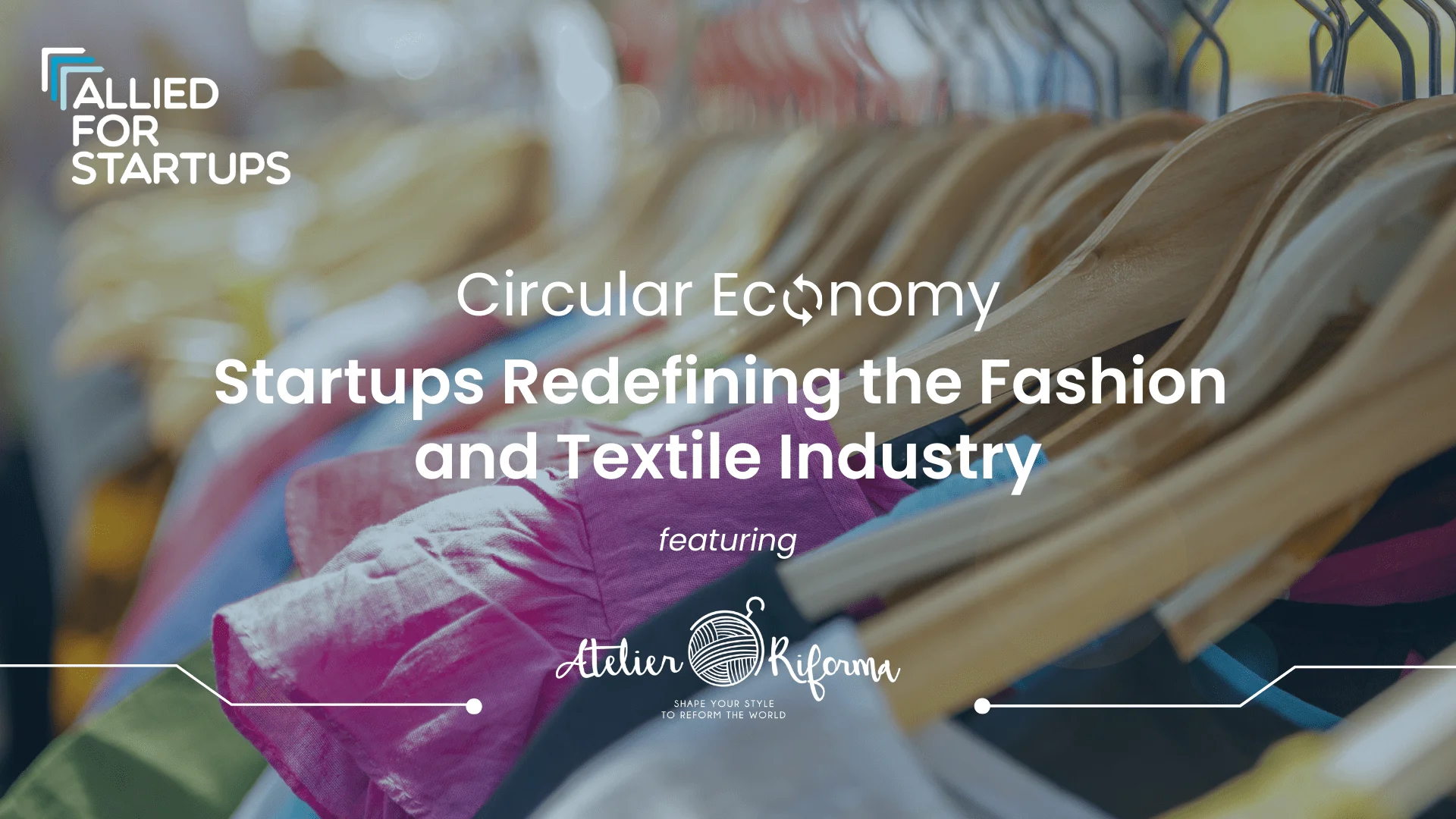Circular Economy: Startups Redefining the Fashion and Textile Industry
In today’s increasingly environmentally conscious world, the adoption of a circular economy has become imperative. Our current economic model, characterised by the unsustainable extraction, production, and disposal of goods, has placed immense pressure on our ecosystems. The consequences, such as pollution and resource depletion, have become all too evident. In contrast, the circular economy promotes a more regenerative approach, emphasising product longevity, reuse, and recycling. By reducing waste, conserving resources, and minimising environmental harm, it offers a promising path toward a greener and healthier planet.
Europe Gravitating Towards Circular Economy
As one of the main building blocks of the European Green Deal, The European Commission adopted the new Circular Economy Action Plan (CEAP) back in March of 2020. This ambitious initiative set the world’s largest single market area on a transition towards a more sustainable systemic change. Its aim was to reduce pressure on natural resources, create new job opportunities related to the circular economy and facilitate sustainable growth, while also being a prerequisite to achieving the EU’s 2050 climate neutrality target.
Sustainable Fashion and Textile Industry
Despite sustainable initiatives, it is estimated that the EU generates roughly 12.6 million tonnes of textile waste per year, with its primary endpoints often involving incineration and landfills. This results in adverse implications for both the well-being of individuals and the environment. Therefore, embracing a more circular economy requires leaning towards more sustainable textile waste management practices.
Startups Revolutionising the Industry
From rethinking the ways of manufacturing textiles, to reducing overconsumption, reimagining product life cycles and recycling mechanisms, startups are becoming the ultimate force in boosting green transition. Among the Members of our newly established Startup Climate Network is an illustrious example – an Italy-based social vocation Atelier Riforma propelling the fashion and textile industry towards a more circular production and consumption model.
The organisation has found a way to extend the lifespan of garments by promoting the utilisation of post- and pre-consumer textile waste as secondary raw material. Through leveraging their novel Re4Circular technology, an AI-based solution that functions as a B2B-type digital marketplace, it allows for cataloguing and digitalisation of textile waste in an automatic way. Circular businesses, such as second-hand shops, upcycling brands and artisans, textile recycling companies, may then select the most suitable pieces and purchase them online in a transparent fashion. “Our current business model makes use of the new technologies to allow any organisation that collects used clothes or has deadstocks to manage the garments efficiently and in a circular manner. This way, directing each garment towards the recovery method most suitable for it (following the hierarchy of waste). For example sartorial upcycling, reusing and recycling of textiles, or transformation of the fibres into products useful in other industries. […] It is a technology that is used to classify and digitise clothes quickly – the process is made more convenient and faster thanks to artificial intelligence, as our algorithm is trained to automatically recognize the important information for recovery of textile waste just from a photograph.” says Elena Ferrero, the CEO of Atelier Riforma.
By quantifying the amount of textiles saved from landfills and determining the proportion of garments that end up reused, recycled or upcycled, the company is capable of thoroughly measuring its positive environmental impact. Therefore, each year, it releases a public assessment document that examines the effectiveness of its initiatives. However, while the organisation is highly driven by its goal to reduce the fashion industry environmental footprint, its mission goes beyond that. “One of our aims is to reduce waste by valorizing the skills (such as repair, tailoring, craftsmanship, etc.) of the many circular fashion projects, in particular those whose mission is the job inclusion of disadvantaged people. In fact, our aspiration has always been to be social entrepreneurs; innovators who could have a positive impact on society and the environment.” – explains Ferrero. With its business model, the organisation actively contributes to economic growth by creating employment opportunities. The network of circular projects that the startup has built over the years is made up also of various sartorial entities – tailors, designers and social tailoring workshops. Among these are those specifically dedicated to resocialisation and fostering labour inclusion of marginalised groups – migrants, former prisoners, and domestic violence victims, serving as a catalyst for positive social change and empowerment.
In conclusion, seeing the alarming state of our environment, the adoption of more sustainable practices across industries is essential in our quest for a brighter and greener future. On top of various initiatives, startups worldwide continuously emerge with innovative solutions that bring on positive environmental outcomes while also driving meaningful social change and contributing to economic growth.
Follow Atelier Riforma on LinkedIn, Facebook and Instagram.

